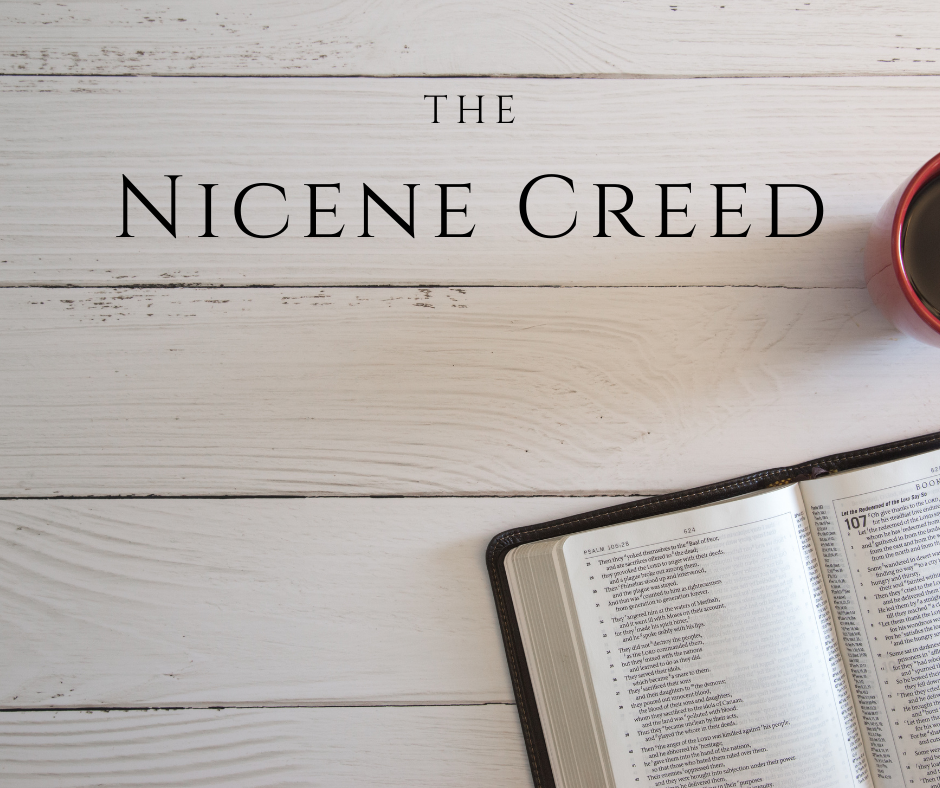Feeding of the Four Thousand
Feeding of the Four Thousand (Mark 8:1-9) In my short time as being a pastor, I have had a few moments of absolute shock and fear as I begin the scripture reading and a sense of Déjà vu comes sweeping across my mind. I think to myself, have I preached or taught this text already. Have I pulled up the wrong sermon notes? Did I print out last week’s bulletin? These moments are often short-lived. When we read the Bible as
And in the Holy Ghost
First, let us begin with an understanding of the word Ghost or Spirit. This is a difference in the English language and shows the progression of words. The Holy Ghost was used in the 1611 King James Version of the Bible. The Holy Ghost is translated 90 times in the KJV, and Holy Spirit is only translated seven times. Ghost today has taken on a broader semantic range than in 1611; ghost used to mean "an immaterial being"; however, today,
Be Opened
We come to a passage that many people seek to skip over. They might do so for various reasons, the use of spit and placing fingers in ears, the connection between bread and being satisfied from the Syrophoenician woman (Mark 7:24-30) and the bread and feeding of the 4000 (Mark 8:1-10), and finally they might, as I have mentioned before, seek to focus on Matthew and Luke compared to Mark. However, this passage is important for serval reasons. Under the
Difference between 325 and 381
Before moving to the next section, I want to stop and reflect on something that I have commented about a couple of times. This Creed we are looking at was written within history and dealing particularly with heresies, mainly Arius' heresy saying Jesus was not God but was a celestial servant of God. In the original Creed, 103 Greek words were used, 83 spoke about the second person of the Trinity (See Chart 1). The Creed was approved in 325,
Crumbs at the Table
Mark turns from the handwashing and dietary laws of the Pharisees who questioned Jesus' disciples' cleanliness, of what is clean and unclean. In this literary masterclass, he now writes about the story of the Syrophoenician woman. Up to this point, many people have not understood Jesus and his teaching. The pharisee's thought the law was about having clean hands and not a clean heart. They thought they could enter heaven with their handwashing and diet. However, in today's passage, we
Whose kingdom shall have no end
Forever is a long time. Often children cannot grasp the concept of time, the age-old question, "are we there yet?" Which can be asked just as you exit your driveway. For us, everything is within time. Time is how we measure many things. We have birthdays, and 'death-days' time, like our physical bodies, has limitations. No one can squeeze an additional second out of a day. The difficult aspect that we cannot wrap our heads around is not time but
From Within
You are what you eat. This saying comes from a French lawyer who lived in 1826, who said, "Tell me what you eat, and I will tell you what you are." Eventually, it became common in English in the 1930s when Victor Lindlahr published a book called "You Are What You Eat: how to win and keep health with diet." Simply, you eat bad food. You will have bad health. Today many people talk about diets. People are willingly or
Judge the Quick and the Dead
We love the story of Jesus' incarnation. We love the story of him being placed in the manager. We love the story of him at the temple at a young age. We love the story of Christ and the cross. However, many Christians struggle with Christ as the judge. We don't want people to interfere with our lives. We are happy to take encouragement but not criticism. "God is Love." The Bible verse people love to quote, to live by.
Wash Your Hands
The structure of Mark is fascinating. One commentator explains that for Mark, "Placing stories together like bricks in a row with little if any editorial cement is not unusual in Mark." The last time Mark mentioned the Pharisees were in Mark 3:6, "The Pharisees went out and immediately held counsel with the Herodians against him, how to destroy him." A massive cliffhanger, and then Mark turns quickly to the sea of Galilee voyages. Mark has not mentioned the Pharisees in
Come again
When we minimize the work of Christ to his death and resurrection, we neglect many aspects of the work of Christ. One of these aspects truly affects the life of a believer. If Christ has done everything for us, then why would it matter how we live? One aspect of the Christian life is that Christ is coming back. We live in the age between the two advents, one of his humiliation, and the second Christ returns with all of





